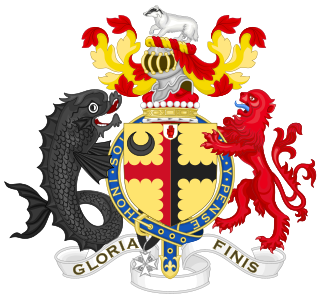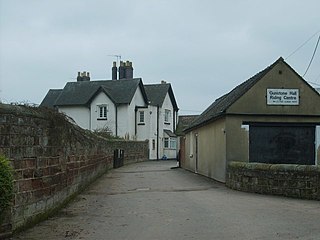Sir Richard Ingoldsby (1617–1685) was an English army officer and regicide.
Colonel Sir Richard Ingoldsby was an English officer in the New Model Army during the English Civil War and a politician who sat in the House of Commons variously between 1647 and 1685. As a Commissioner (Judge) at the trial of King Charles I, he signed the king's death warrant but was one of the few regicides to be pardoned.
Richard Ingoldsby may also refer to:
- Sir Richard Ingoldsby (knighted 1617), English landowner, father of the above
- Richard Ingoldsby (British Army officer, died 1712), British Army lieutenant-general, grandson of the above and nephew of the regicide
- Richard Ingoldesby (died 1719), British Army colonel and lieutenant-governor of New York
- Richard Ingoldsby (British Army officer, died 1759), British Army brigadier-general, great-grandson of the regicide
Sir Richard Ingoldsby, KB, of Lethenborough, Buckinghamshire, was the son of Sir Richard Ingoldsby of Lethenborough, the High Sheriff of Buckinghamshire in 1606, and of his first wife Elizabeth Palmer. She was the daughter of William Palmer, of Waddesdon, Buckingamshire and Joyce Pigott,.
Lieutenant General Richard Ingoldsby was an Anglo-Irish general, who enjoyed the personal regard of John Churchill, 1st Duke of Marlborough, and later played a prominent role in the government of Ireland.
Richard Ingoldsby or Ingoldesby was a British army officer and lieutenant governor of both New Jersey and New York. He became the acting governor for the two colonies from May 1709 to April 1710.
| This disambiguation page lists articles about people with the same name. If an internal link led you here, you may wish to change the link to point directly to the intended article. |





